The most memorable newspaper front pages of 2022
From Uber files and Partygate revelations to Liz Truss’s lettuce face-off

A free daily email with the biggest news stories of the day – and the best features from TheWeek.com
You are now subscribed
Your newsletter sign-up was successful
Covid largely disappeared from Britain’s front pages in 2022 – but the pandemic headlines were swiftly replaced by the cost-of-living crisis, Ukraine war and merry-go-round at No. 10.
Newspapers grappled with the death of the Queen, in the year of her Platinum Jubilee, and the dawn of the Carolean era. Column inches were dedicated to record-breaking temperatures and a spate of strikes, with revelations about royals and global tech firms in between.
Here are some of the most memorable front pages of the year.
The Week
Escape your echo chamber. Get the facts behind the news, plus analysis from multiple perspectives.

Sign up for The Week's Free Newsletters
From our morning news briefing to a weekly Good News Newsletter, get the best of The Week delivered directly to your inbox.
From our morning news briefing to a weekly Good News Newsletter, get the best of The Week delivered directly to your inbox.
‘Barbaric’
In March, several papers dedicated their covers to a picture of a pregnant woman being evacuated on a stretcher after a Russian missile strike on a hospital in the besieged Ukrainian city of Mariupol.
It “has become one of the defining images of human suffering in the war” and a “grim symbol of how Russia’s campaign in Ukraine was increasingly targeting civilians”, said The New York Times. Four days later, AP reported that the woman and her baby had died.
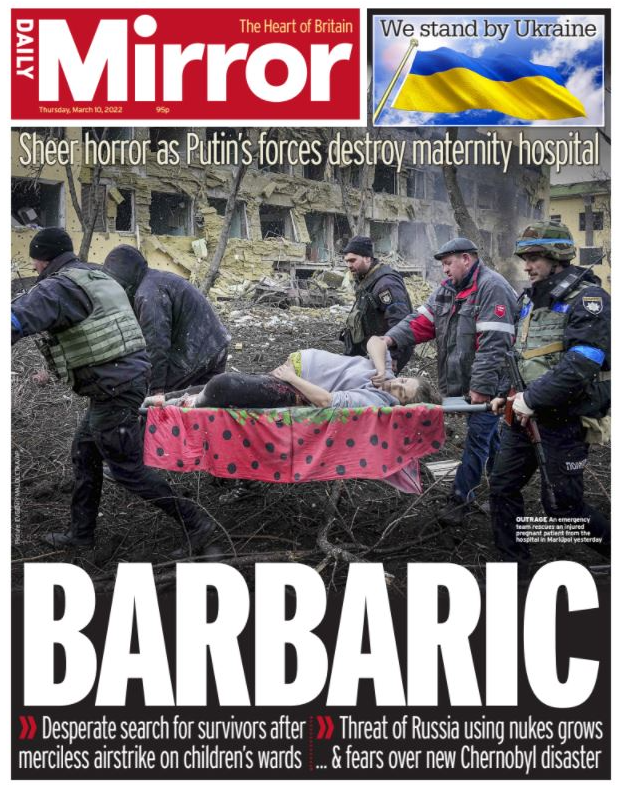
Boris raises a toast
Partygate continued to dominate newspaper headlines in the first half of the year. In May, ITV News pipped Whitehall investigator Sue Gray to the post by releasing images of one of the Downing Street parties during lockdown.
One picture, showing Boris Johnson raising a glass during leaving drinks for his former director of communications, was featured across the papers the following day. The Telegraph said the photos put pressure on Scotland Yard to explain why the prime minister had not faced more than one fine for partying during lockdown.
A free daily email with the biggest news stories of the day – and the best features from TheWeek.com
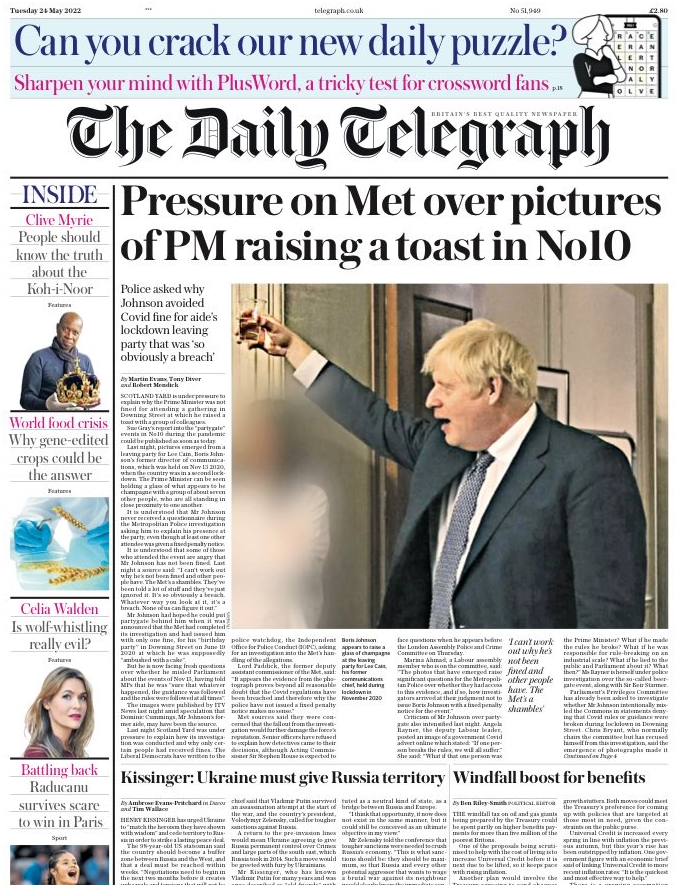
Pincher resigns
Just a few days into her new job as The Sun’s political reporter, Noa Hoffman was behind a splash that revealed Tory MP Chris Pincher had quit as deputy chief whip amid allegations that he groped two men while drunk.
Media trade magazine Press Gazette named it one of the “scoops that brought down the Prime Minister”, as it received “widespread praise” for its role in “triggering” events that led to Johnson’s resignation.
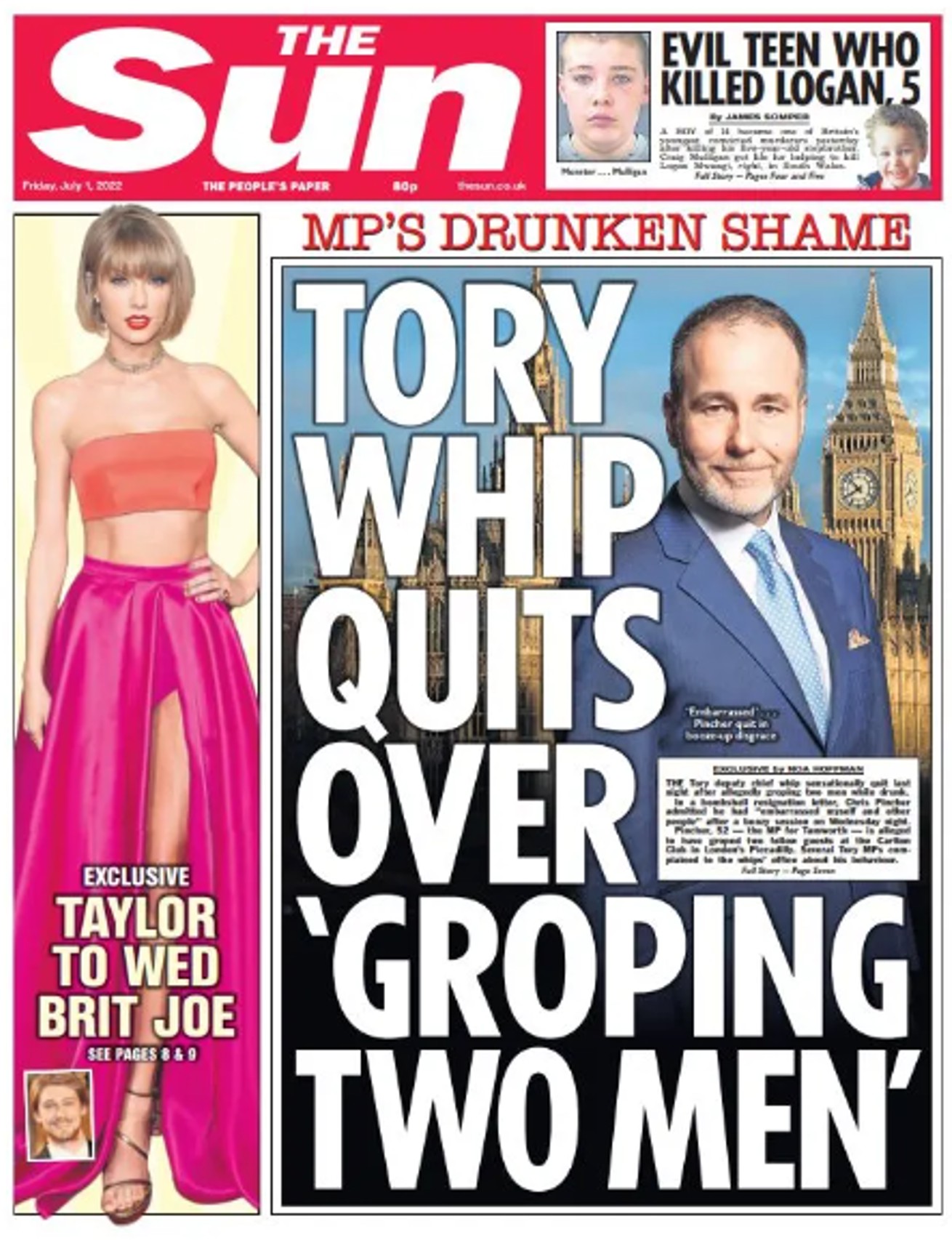
Burning Britain
“Burning hot Britain”, declared Metro in July, as temperatures hit a record high of 40.3 degrees Celsius. Fires were pictured on front pages as flames ravaged through homes and buildings.
Many papers carried a quote from West Yorkshire’s deputy chief fire officer Dave Walton, who called it a “wake-up call” for the impact of climate change on heatwaves.
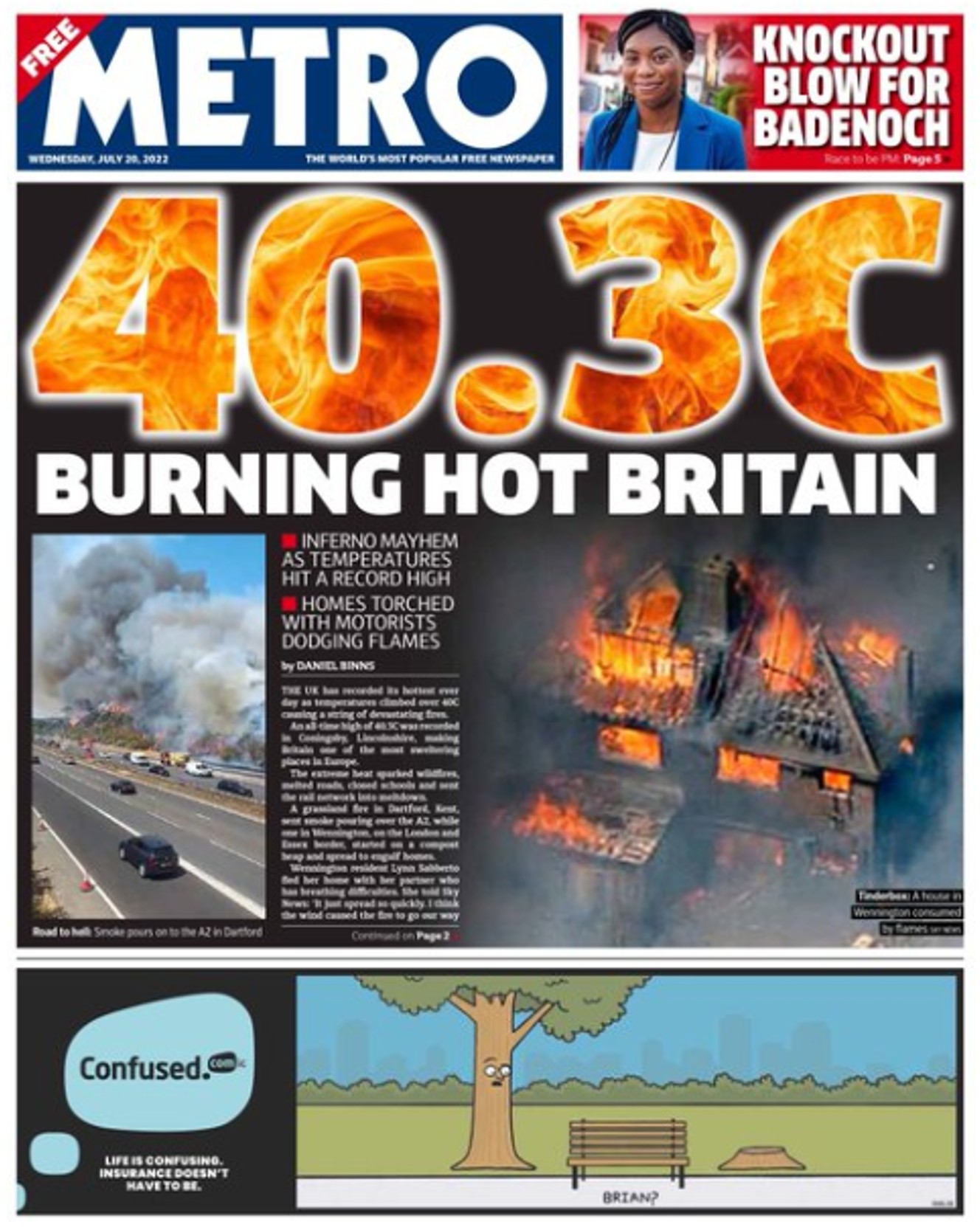
The Bin Laden donation
In a scoop for The Sunday Times, Gabriel Pogrund and Charles Keidan revealed that the then Prince Charles accepted a £1m payment from Osama bin Laden’s family. Clarence House said the Prince of Wales’s Charitable Fund (PWCF) received the donation after “thorough due diligence” and the decision was taken by the trustees.
“No rule has been broken, no law has been broken,” said BBC royal correspondent Jonny Dymond. But “did Prince Charles or his inner circle really think it was a good idea to take money from the Bin Ladens?” Once it became public, “however many checks were made and rules were followed – it was always going to look horrible”.
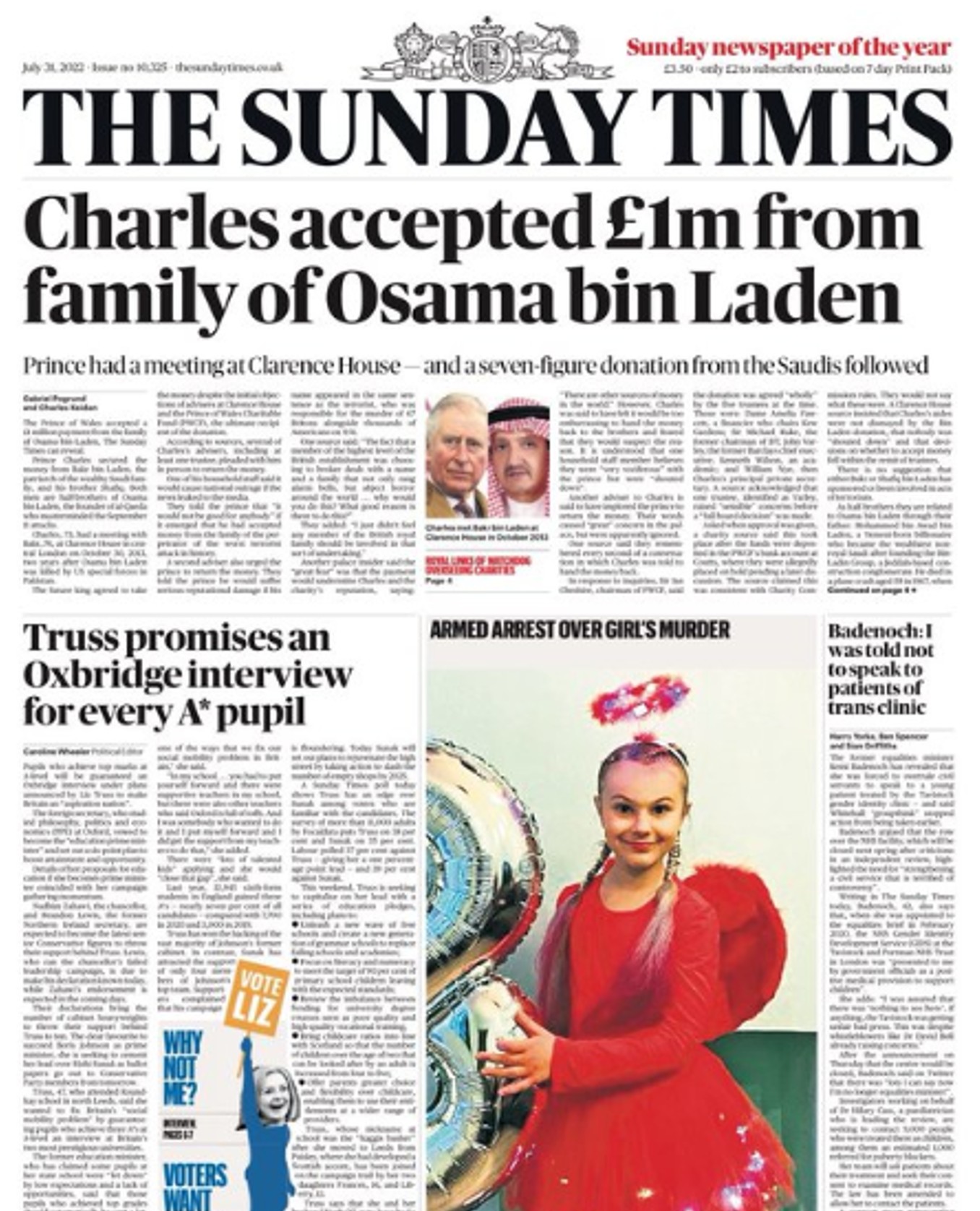
The Uber files
The Guardian published its global investigation into 124,000 leaked documents from Uber over the summer. The mammoth exposé, in which 180 journalists across 40 media organisations trawled through data spanning 40 countries from 2013 to 2017, claimed the tech company had “flouted the law, duped police, exploited violence against drivers and secretly lobbied governments across the world”.
Uber said it would not “make excuses for past behaviour that is clearly not in line with our present values”, but asked the public to judge it on what it had done in the years after 2017 and “what we will do in the years to come”.

Death of the Queen
As the nation woke up to its first day following the Queen’s death, newspapers in Britain and across the world “published historic editions to commemorate her 70-year reign”, said The Spectator.
“How to find the words? Our grief is a hundred emotions, all of them hard to grasp,” wrote columnist Sarah Vine on the front page of the Daily Mail.
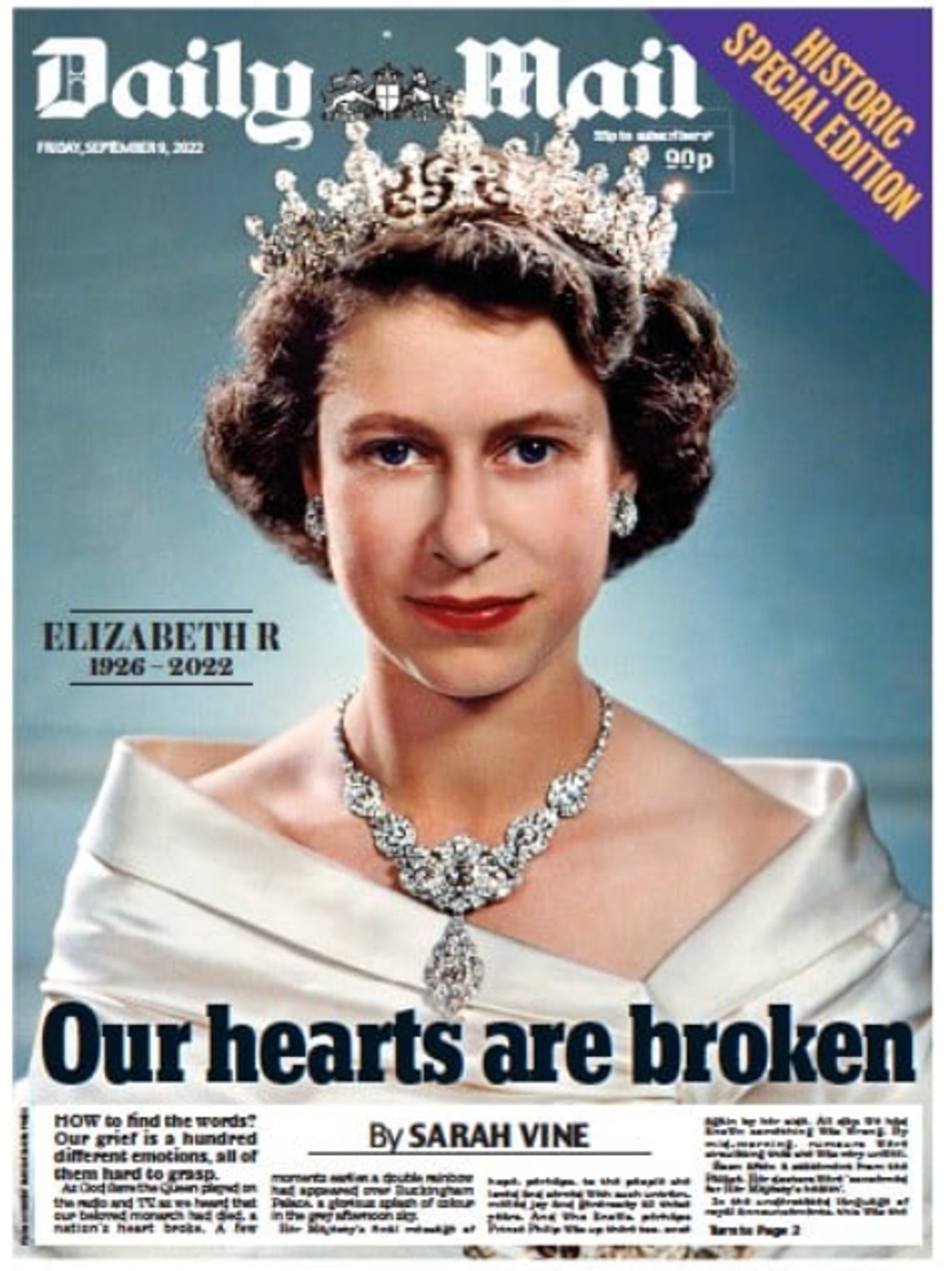
‘Lettuce rejoice’
The Economist’s unfavourable comparison of Liz Truss’s shelf-life to that of a lettuce inspired the Daily Star to launch a livestream of an iceberg lettuce next to a framed photograph of the prime minister – to see which would last the longest.
The stunt hit headlines across the globe, with The Washington Post explaining to baffled US readers that the PM had become the “butt of quintessentially British jokes”. In the end, Truss’s Downing Street stint expired faster than the well-watched veg and the Daily Star celebrated with a front page declaring the lettuce “victorious”.
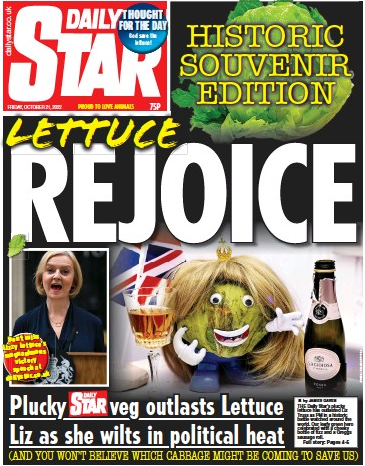
A lost decade
The cost-of-living crisis was high on the news agenda as inflation soared and disposable incomes fell. The i splashed with “UK’s lost decade” following Jeremy Hunt’s Autumn Statement in November.
The chancellor admitted he would have to take “difficult decisions” on areas such as tax and public spending to ensure stability and growth. The paper said the country had seen the “biggest drop in living standards on record… sending British earnings back to 2013”. Britain is paying the price for “Putin’s war in Ukraine, the pandemic, Brexit policies and Liz Truss’s damage to market confidence”, it said.
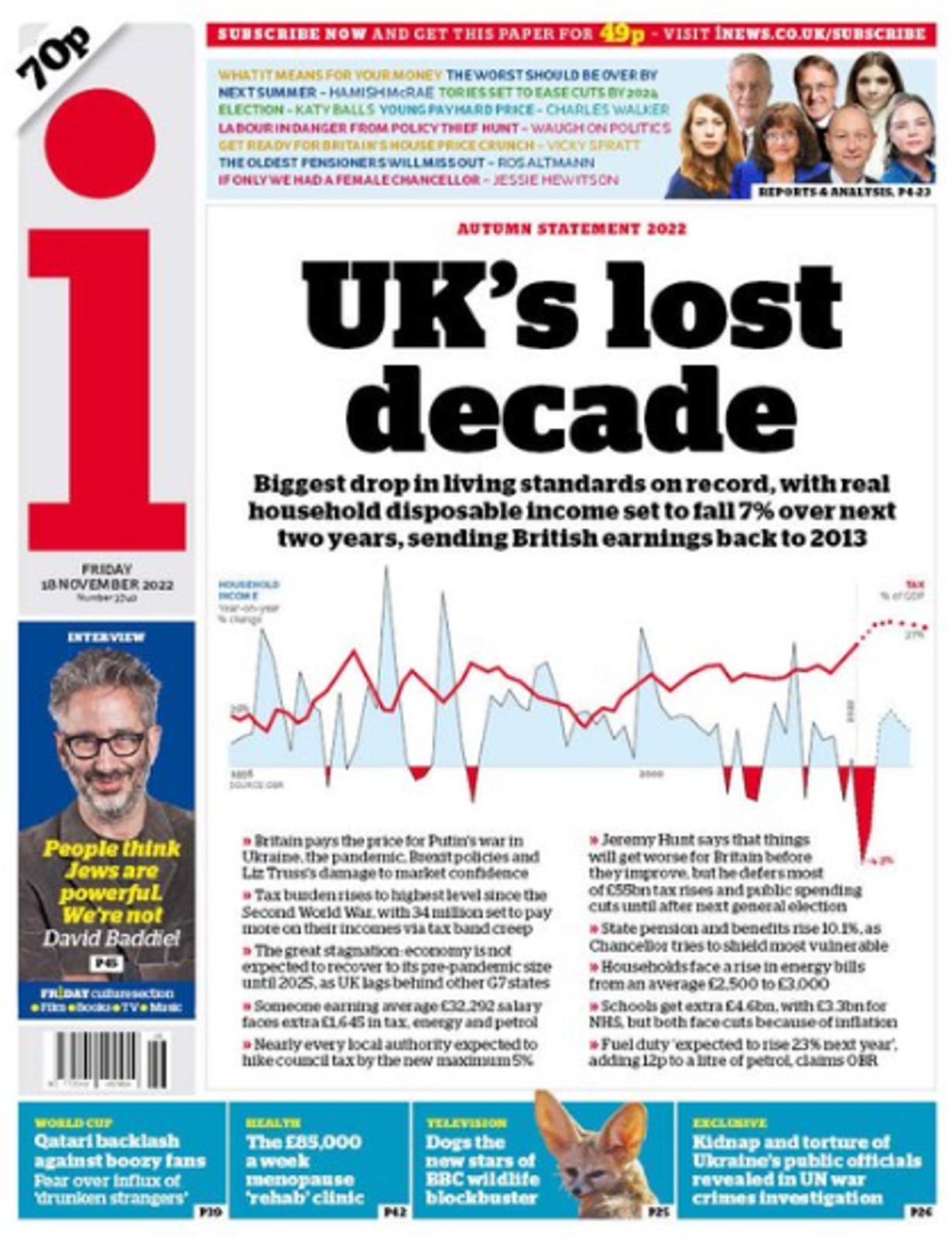
Hollie Clemence is the UK executive editor. She joined the team in 2011 and spent six years as news editor for the site, during which time the country had three general elections, a Brexit referendum, a Covid pandemic and a new generation of British royals. Before that, she was a reporter for IHS Jane’s Police Review, and travelled the country interviewing police chiefs, politicians and rank-and-file officers, occasionally from the back of a helicopter or police van. She has a master’s in magazine journalism from City University, London, and has written for publications and websites including TheTimes.co.uk and Police Oracle.
-
 How the FCC’s ‘equal time’ rule works
How the FCC’s ‘equal time’ rule worksIn the Spotlight The law is at the heart of the Colbert-CBS conflict
-
 What is the endgame in the DHS shutdown?
What is the endgame in the DHS shutdown?Today’s Big Question Democrats want to rein in ICE’s immigration crackdown
-
 ‘Poor time management isn’t just an inconvenience’
‘Poor time management isn’t just an inconvenience’Instant Opinion Opinion, comment and editorials of the day
-
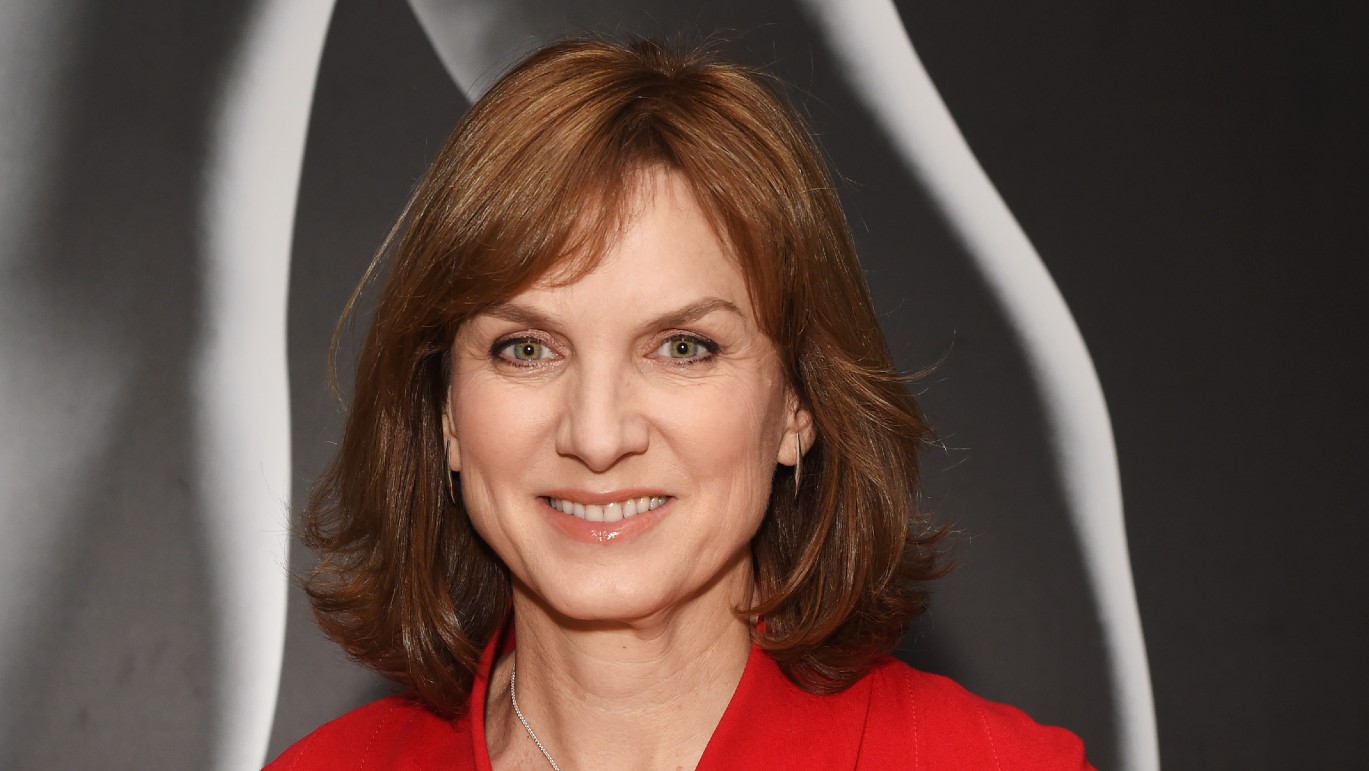 Fiona Bruce: has Question Time host been ‘hung out to dry’?
Fiona Bruce: has Question Time host been ‘hung out to dry’?In Depth Presenter accused of trivialising domestic abuse in debate about Stanley Johnson
-
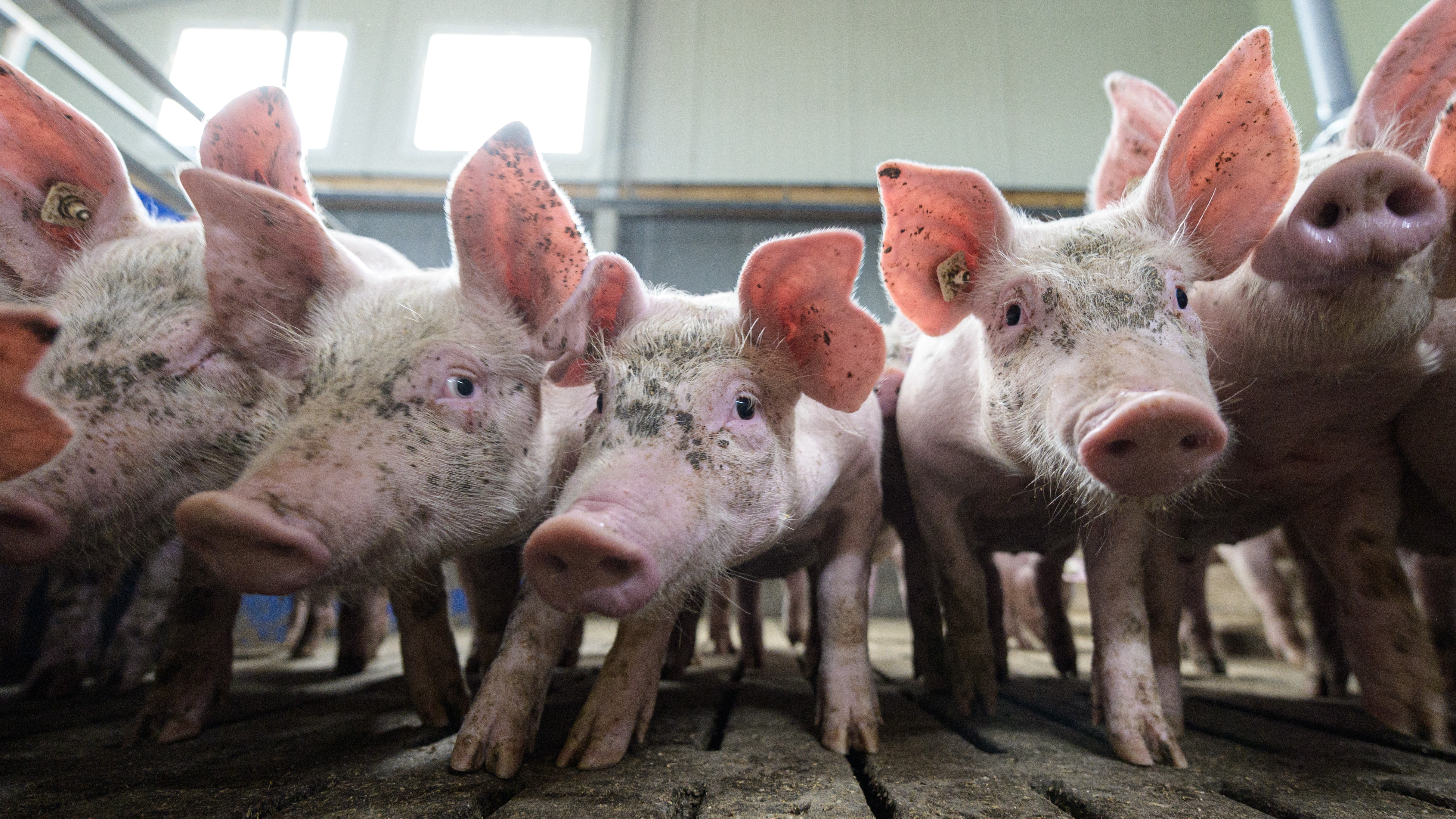 The Week Unwrapped: wheels or doors, Russian losses and speaking pig
The Week Unwrapped: wheels or doors, Russian losses and speaking pigpodcast What makes a social media post go viral? What does the war in Ukraine mean for pensions? And can an algorithm understand a pig’s emotions?
-
 The Ukrainian-Russian families at conflict over invasion
The Ukrainian-Russian families at conflict over invasionfeature Estimated 11m people in Russia have Ukrainian relatives – but some ‘don’t believe’ war is even happening
-
 How the world reported the ‘final push’ to avoid war in Ukraine
How the world reported the ‘final push’ to avoid war in Ukrainefeature Western officials warn of imminent conflict while Ukraine sticks to more measured rhetoric
-
 RT: Putin's mouthpiece or a home for alternative voices?
RT: Putin's mouthpiece or a home for alternative voices?In Depth Latest Russia Today journalist quits and accuses channel of 'disrespecting the facts'